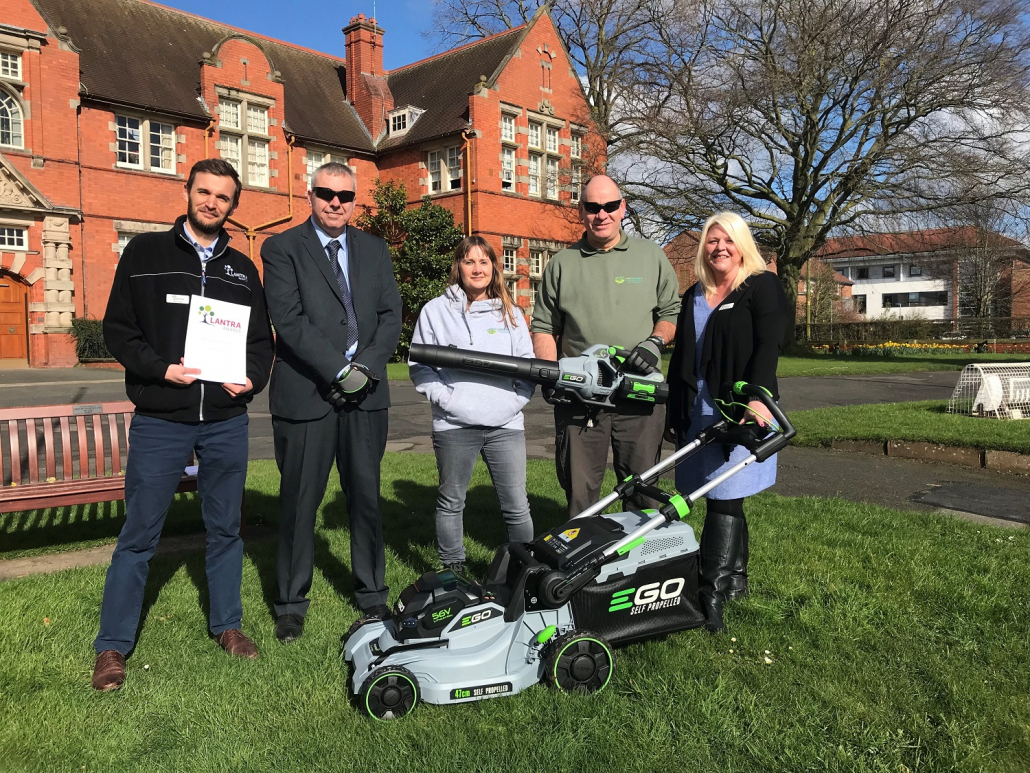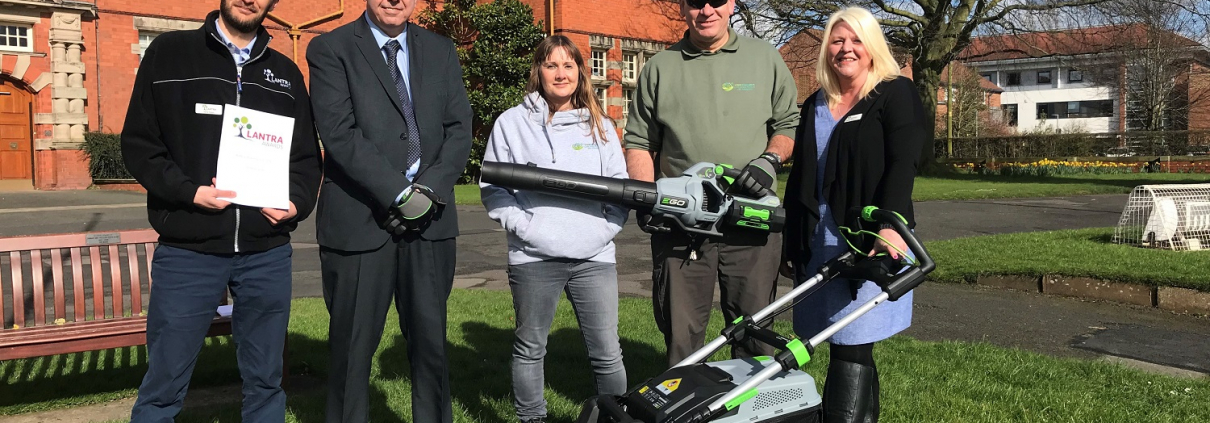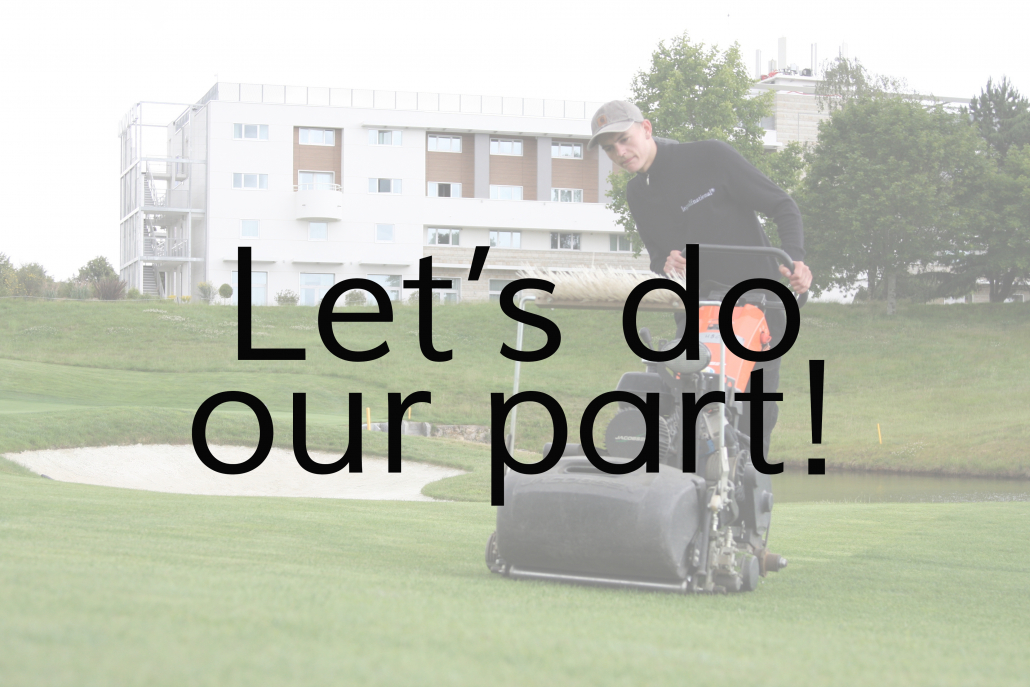EGO partners with Lantra
EGO partners with Lantra: EGO has partnered with training provider Lantra to deliver professional courses for battery-powered outdoor power equipment.
Lantra is one of the UK and Ireland’s leading awarding bodies for land-based industries, developing training courses and nationally recognised qualifications that are delivered through a network of 384 Training Provider Partners.

EGO partners with Lantra
With the industry seeing unprecedented demand for alternatives to petrol powered equipment, Lantra has launched the course which teaches students how to productively use battery-powered equipment. The course will also cover the safe maintenance and use of hand-held battery-powered equipment such as mowers, chainsaws, pole saws, hedge trimmers, brush cutters, line trimmers and leaf blowers.
As part of the partnership, EGO is providing Lantra’s training partners with a range of battery-powered equipment including lawnmowers, leaf blowers and chainsaws. These tools will be used as part of the course to teach users about safe operation and maintenance of battery equipment and satisfy the hands-on nature of Lantra’s courses.
David Fisher, Head of Industry Partnerships at Lantra: “Battery-powered equipment is undoubtedly growing in its usage and appeal. This is why we felt it important to deliver a course that ensures users feel confident in using and maintaining these tools efficiently and safely. We’re delighted to partner with EGO and the equipment that has been provided will be of great use to our training partners when delivering these courses.
Peter Melrose, Managing Director EMEA at EGO, said: “With the industry’s attitudes to petrol changing rapidly, we are proud to announce this partnership with Lantra as they aim to increase education on battery-powered equipment. The switch to battery-powered equipment naturally comes with a level of anxiety for many users, particularly those who have used petrol long term. This course enables both industry newcomers and seasoned industry professionals to gain a better understanding of the next generation of products.”
Find out more at egopowerplus.co.uk
For the latest industry news visit turfmatters.co.uk/news
Get all of the big headlines, pictures, opinions and videos on stories that matter to you.
Follow us on Twitter and Instagram for fun, fresh and engaging content.
You can also find us on Facebook for more of your must-see news, features, videos and pictures from Turf Matters.

















